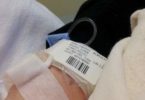What's in this article?
When is mucus not normal?
A large amount of visible mucus in your stool is not normal and might be a sign of a problem. If you begin seeing mucus in your stool, the levels are probably already elevated. That doesn’t necessarily indicate you have a problem, but it’s something you should monitor.
Excess mucus in the stool is sometimes accompanied by other symptoms, which may be a sign of a bigger problem. These symptoms include:
- blood or pus in the stool
- abdominal pain, cramping, or bloating
- changes in bowel movements or habits
What causes mucus in stool?
A small amount of mucus in stool is usually nothing to worry about. Stool normally contains a small amount of mucus a jelly-like substance that your intestines make to keep the lining of your colon moist and lubricated.
But you should talk to your doctor if you notice an increased amount of mucus in stool particularly if it begins happening regularly or if it’s accompanied by bleeding or a change in bowel habits.
Larger amounts of mucus in stool, associated with diarrhea, may be caused by certain intestinal infections. Bloody mucus in stool, or mucus accompanied by abdominal pain, can represent more serious conditions Crohn’s disease, ulcerative colitis and even cancer.
Mucus in Constipation
Mucus in hard stools may be due to:
- Constipation due to a sedentary lifestyle, insufficient water intake, medication that causes constipation as a side effect, low-fiber diet, anxiety or depression and several other known and unknown causes.
- Bowel obstruction from a polyp, cancer, volvulus, intussusception, or swallowed foreign object. It can also occur when movement through a section of the bowel ceases which is known as pseudo-obstruction.
Mucous Diarrhea
Irritable Bowel Syndrome (IBS)
In many cases, the cause of mucus in stools (with diarrhea or constipation) occurs where no underlying disorder can be identified. In these cases the abnormal bowel habit, often accompanied by abdominal pain, is diagnosed as IBS (irritable bowel syndrome) which was previously referred to as spastic colon. IBS is considered to be caused by an abnormality in movement through the bowels but is not due to any disease. Acute flareups may occur with psychological stress and certain irritant/trigger foods.
Food Poisoning
In food poisoning (due to bacteria or parasites), there is nausea, vomiting and diarrhea with occasional mucus stools as well as the following:
- History of suspicious food eaten in previous 72 hours, especially where other people who had eaten the same foods are also affected.
- Bloating, abdominal cramps, occasional fever or, rarely blood in the stool.
Mucus and greenish diarrhea is common with infections caused by the giardia parasite that leads to giardiasis.
Food Intolerances
The term ‘food intolerance’ is a broad term that refers to conditions where the body cannot digest or absorb certain nutrients. It may also be incorrectly used to describe cases where foods trigger inflammation due to an immune-mediated allergu response. Therefore in these cases mucus often appears in stool due to:
- Fructose malabsorption
- Lactose intolerance (symptoms appear after dairy)
- Food allergies
- Celiac disease (symptoms appear after eating gluten containing cereals: wheat, barley and rye)
Diagnosis is primarily reached through an elimination diet whereby foods are removed from the diet one at a time and then gradually reintroduced. The other diagnostic method that may be considered is a breath test.
Treatments for mucus in stool
Bacteria found in the stool will sometimes be treated with antibiotics, and resting will help to pass and heal the symptoms.
Eating habits may need to change to lessen the chances of catching a bug again. This approach is also the case with a food allergy. Should one be present, lifestyle changes need to occur quickly.
In some instances, prescription medication and ongoing treatment will need to be taken. Such cases include Crohn’s disease and some other gut-related diseases. Surgery may be required for those with anal fissures and rectal ulcers.
Some over-the-counter probiotics and supplements can help those with irregular daily bowel movements, constipation, or diarrhea.
People should speak with a doctor or pharmacist before taking medication. Keeping a journal may help people with frequent and persistent mucus in their stool to note patterns. This tool is very helpful for doctors as well.






Leave a Comment